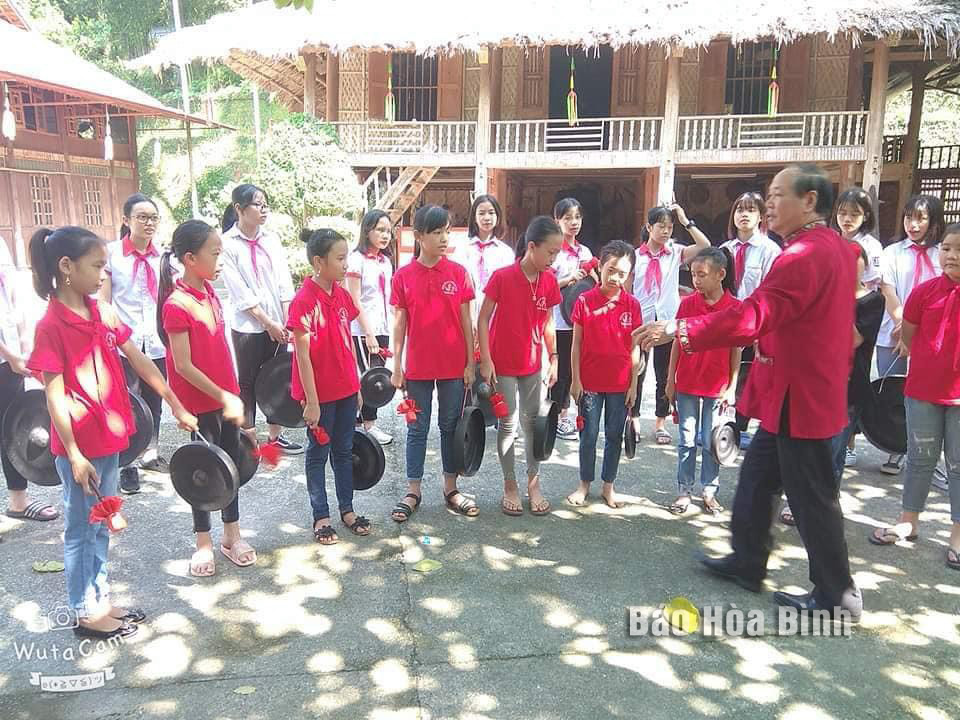



Club of youths and teenagers preserving the cultural identity of the Muong ethnic group of Thai Binh ward’s Ho Chi Minh Communist Youth Union operates regularly, and proves effective.
Along with socio-economic development tasks, the ward has actively participated in preserving and promoting the values of cultural heritages and fine traditions of the Muong people such as gong art, ‘Mo Muong’, costumes, folk games, folk literature, folk songs, language, writing, traditional crafts, customs, practices, beliefs, and cuisine. It has promoted the dissemination of the Party’s directives and resolutions, and the State’s policies and laws on preserving, maintaining and promoting the traditional cultural values of ethnic groups, thus helping raise people's awareness of this work.
Currently, in Thai Binh ward, there is a Muong cultural space museum and a Muong cultural heritage museum. The Muong cultural space museum, located on Tay Tien street, is the first private in Hoa Binh province. It displays more than 3,000 valuable artifacts of the ancient Muong people, and recreates a cultural space that clearly reflects the spiritual life and customs of the Muong people.
Meanwhile, the Muong cultural heritage museum, owned by Meritorious Artisan Bui Thanh Binh, preserves up to 5,000 artifacts of all kinds. It also has a large yard where folk music and games are introduced and taught.